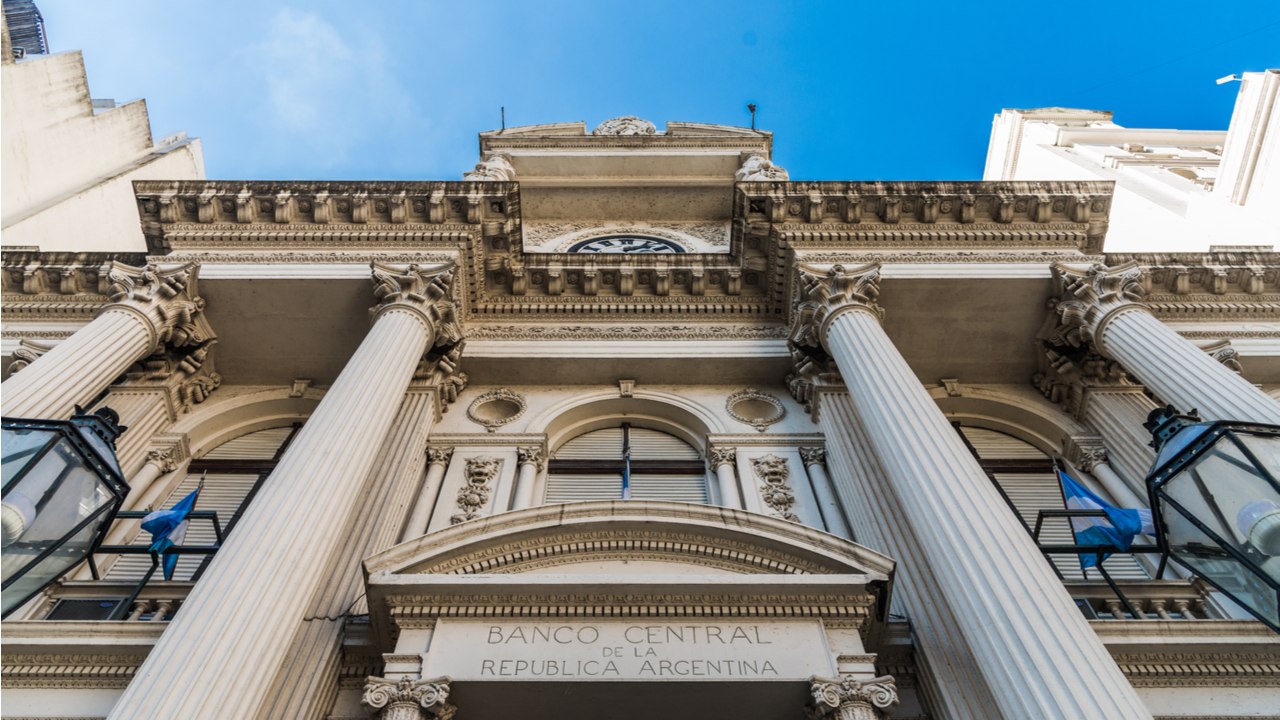 The Central Bank of Argentina has taken steps to ban private banks from offering cryptocurrency services to customers in the country. The action comes after two banks had started offering cryptocurrency purchasing services from their apps. The measure is said to be directed at mitigating risks associated with cryptocurrency assets. Central Bank of Argentina Closes […]
The Central Bank of Argentina has taken steps to ban private banks from offering cryptocurrency services to customers in the country. The action comes after two banks had started offering cryptocurrency purchasing services from their apps. The measure is said to be directed at mitigating risks associated with cryptocurrency assets. Central Bank of Argentina Closes […]
Only four days have passed since two of Argentina’s biggest banks opened up to crypto trading but now the central bank has stepped in to block the offerings.
The central bank of Argentina (BCRA) has put the kibosh on financial institutions offering crypto trading only days after two of the country's largest banks signaled they were opening up to digital assets.
On May 5 the BCRA said the move was to mitigate the risks crypto poses to users and “to the financial system as a whole” citing crypto’s high volatility, use in money laundering and absence of regulatory safeguards.
The news came hot on the heels of an announcement on Monday from two of the countries largest banks, Banco Galicia and Brubank, that they would allow their customers to purchase Bitcoin (BTC), Ethereum (ETH), USD Coin (USDC) and Ripple (XRP).
The decision to open crypto trading was decided by a poll conducted by Banco Galicia where 60% of respondents said they wanted easier access to digital currencies.
The central bank has long taken a dim view of crypto, issuing an alert to the public in May last year on the risks, warning once again of concerns around volatility and money laundering despite the bank saying there were not yet signs of “significant levels of acceptance and use.”
According to figures from data analysis form Statista, 21% of respondents in Argentina had owned or used crypto in 2021 marking the sixth-highest rate of adoption in the world and the highest rate in the Americas.
Argentina’s inflation rose another 6.7% in March — the highest rate in 20 years — to hit 55.1% year-over-year according to INDEC, the countries' statistics agency. Some Argentinians have turned to crypto in an attempt to hedge spiking inflation. In April one rural town began the process of mining cryptocurrency to fight inflation.
Related: Colombia clamps down on crypto tax evasion as adoption thrives
The change in emphasis from last May could be relate to a $44 billion extended debt plan from the International Monetary Fund (IMF), a clause of which was for Argentina to “discourage the use of cryptocurrencies”.
The announcement from the central bank is at odds with plans from the Mayor of Argentina’s capital Buenos Aires. In late April Mayor Horacio Rodríguez Larreta announced plans to digitize the city with intentions to allow the option for citizens to pay their taxes in cryptocurrencies amongst other blockchain plans.
 Brubank, one of the first Argentinian digital banks approved by the central bank of the country, is getting into the cryptocurrency business. The company announced it is now allowing customers to make cryptocurrency investments via its platform, giving them the ability to purchase crypto assets in its app. This is reportedly the second financial institution […]
Brubank, one of the first Argentinian digital banks approved by the central bank of the country, is getting into the cryptocurrency business. The company announced it is now allowing customers to make cryptocurrency investments via its platform, giving them the ability to purchase crypto assets in its app. This is reportedly the second financial institution […]
Argentina’s largest bank has embraced crypto and will allow its customers to begin purchasing four crypto assets including Bitcoin through their accounts at the bank.
Argentina’s largest and second-largest private banks, Banco Galicia and Brubank, have announced that they will allow customers to make crypto purchases.
Bloomberg reported on May 2 that a resounding 60% of respondents to an Argentinian poll asked for more access to crypto, which catalyzed the banks’ decisions to begin allowing crypto trading.
Affiliate at market research firm Americas Market Intelligence, Ignacio Carballo, tweeted confirmation on May 3 with screenshots of Banco Galicia’s online interface that it had begun supporting Bitcoin (BTC), Ether (ETH), USD Coin (USDC), and Ripple (XRP) purchases.
.#IMPORTANTE: El Banco Galicia incorpora función de comprar #criptomonedas!
— Ignacio E. Carballo (@IECarballo) May 2, 2022
Se transforma así en el PRIMER BANCO DE ARGENTINA en ofrecer el servicio #critpo. Impresionante paso de la Banca Tradicional.
(P.S.: hay que decirlo: chupate esa mandarina!) pic.twitter.com/0Kpi3oMUIL
The South American nation has the sixth-highest crypto adoption rate in the world. Data and survey firm Statista estimates that 21% of Argentines had used or owned crypto by 2021.
Allowing customers to purchase Bitcoin and other cryptos through their bank could help Argentines stay ahead of the crushing inflation in the country. The latest data from economic data tracker Trading Economics says Argentina’s inflation rate in April was 55%. Proponents say Bitcoin’s scarcity and decentralization make it the ideal inflation hedge.
Last month, the town of Sorradino in Argentina purchased mining rigs and planned on starting a mining operation as a way of earning Bitcoin to fight inflation. Its income from mining was estimated to be several hundred U.S. dollars per month.
Taking into account its high adoption rate, the mayor of Argentina’s capital Buenos Aires, Horacio Rodriguez Larreta, announced late last month that the city would begin accepting crypto as payment for public financial services. The city also plans to launch a blockchain-based digital identification (DID) platform for its residents.
Related: El Salvador Bitcoin wallet shows ‘strong sign of adoption,’ exec says
However, Argentina is not the largest country in South America taking giant leaps forward with crypto adoption. Brazil’s senate finally approved the ‘Bitcoin Law’ bill on April 26 which could help add a much-needed regulatory framework for the local crypto industry. It only needs to pass one more committee to be signed into law by President Jair Bolsinaro.